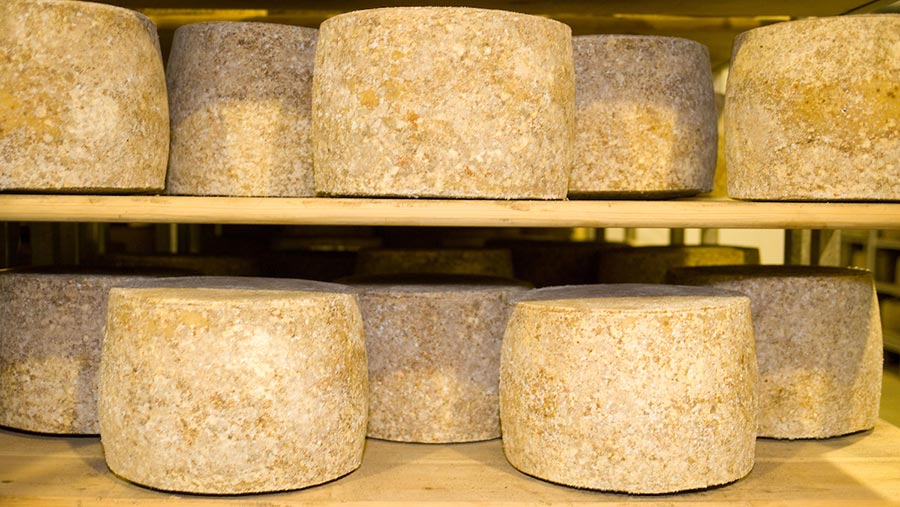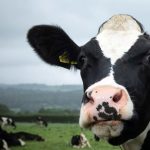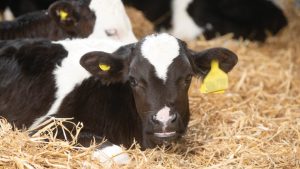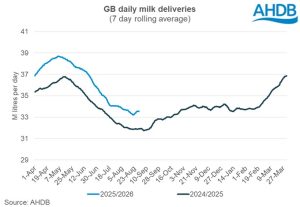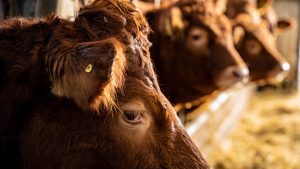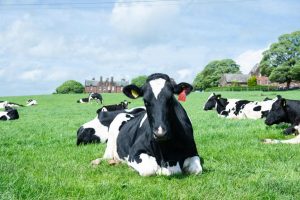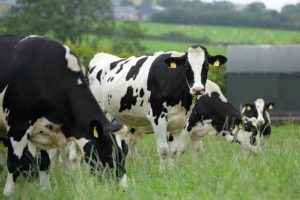
The year-on-year decline was seen across all the major product categories, the levy body said.
Among those categories, processed powders and concentrates recorded the steepest drop, falling 29,000t or 17%.
Cheese exports also fell by 15,000t in 2020, to a total of 193,000t – down 7% on the previous 12 months.
AHDB dairy analyst Kat Jack said trade disruptions also put pressure on exports which were down by 6% on the year to total 1.29m tonnes.
Cheese and curd imports saw the biggest decline in volume terms at 41,000t, a fall of 8% against relatively high imports in 2019.
Ms Jack blamed the drop on disrupted trade and reduced global demand caused by the coronavirus pandemic which hit both UK imports and exports.
UK-US dairy trade
The US is the UK’s second biggest dairy export market after the EU, according to HMRC data. A weaker dollar against sterling and the euro saw import volumes of US dairy products increased markedly.
Although only a small amount of dairy product at 562t of mostly whey protein was imported, it represented an almost eight-fold increase on the previous year volumes.
For exports, UK dairy volumes mirrored the overall figures with a year-on-year decline in sales to the US in 2020.
As well as the strengthening pound and disruptions caused by the coronavirus pandemic, AHDB livestock analyst Charlie Reeve said the Airbus tariff war between the US and UK had hit sales.
The US imposed 25% tariffs on a range of products in late 2019 in a row over government subsidies paid to the aircraft company. In 2020, 9,300t of dairy products were exported to the US from UK companies, valued at £52m.
Cheese exports hit
Devon-based specialist cheesemaker Quicke’s reported a huge drop-off in export sales, particularly to the US market.
Overall, sales of specialist cheese have declined by 28% since the start of the first lockdown last spring, according to owner Mary Quicke.
But the decline in exports of the family firm’s products was greater still at 40% down, compared with the previous 12 months.
Much of that was because specialist cheese is sold via the food service abroad, and the sector collapsed amid measures to control the global spread of Covid-19.
In addition to factors like the stronger pound and tariff war, Ms Quicke highlighted a potentially longer-term shift in the US market.
“The US cheese service launched a hugely successful campaign called American Victory Cheese, alerting the public to the plight of cheesemakers,” Ms Quicke said.
This stirred up patriotism in the US and saw a break with the tradition of having specialist British products on cheeseboards at Christmas and Thanksgiving.
These US markets are key to British cheese producers and Ms Quicke fears UK products have been ousted for the foreseeable future.
“There are some extremely good American cheeses and the victory campaign successfully accelerated a switch away from imported products that had already begun.”
